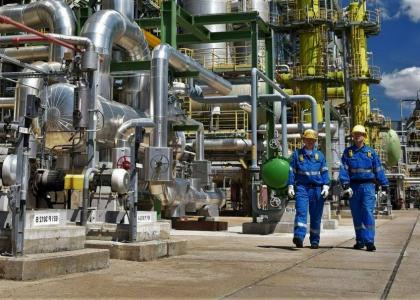ACEEE research shows that energy efficiency is the best available near-term strategy for moderating natural gas prices, and is also key to stable long-term gas markets. To realize this potential, we propose both near-term and longer-term policy responses to the looming crisis in natural price and supply. Our testimony first discusses the roots of the current situation, assesses the potential impact of energy efficiency on wholesale natural gas prices, and points out the limits of supply-side solutions. In the near term—within the next two to three years—moderating energy demand is the most realistic and effective approach to balancing natural gas markets.
We document the energy resource contribution energy efficiency has made to the U.S. economy, and define its overall potential for future contributions, including its potential for saving natural gas. We estimate that, over time, 10-20% or more of U.S. gas demand can be avoided via efficiency, and a significant portion of those savings can be realized in the short term. In addition, saving electricity can expand those savings because so much electricity is generated by natural gas, especially in peak demand periods. A substantial portion of these savings—enough to have an effect on gas prices—can be realized in the next two to three years through an aggressive program of energy efficiency and conservation.
ACEEE’s recommendations for near term action include:
- Supplement current efficiency deployment programs. We recommend Congress pass a supplemental appropriation for federal programs that deliver energy savings to the farm sector, especially the Farm Bill Section 9006 grants program.
- Conduct a national efficiency and conservation campaign. DOE should lead a partnership effort among efficiency manufacturers, farm organizations, utilities, states, and others to accelerate efficiency investments and encourage short-term behavior modifications.
Recommendations for longer-term action include:
- Accelerate federal efficiency standards. DOE should accelerate its standards rulemakings for residential heating equipment and commercial air conditioning equipment, and should take current gas price trends and supply issues into account in setting these standards.
- Expand incentives for high-efficiency technologies. Congress should increase incentives for gas-saving technologies in the current energy bills.
- Expand research and development. DOE budgets for advanced technologies that save gas in the residential, commercial, industrial, agricultural and power sectors should be increased.
- Create public benefits funds for efficiency. States should create and expand public benefits programs dedicated to energy efficiency and renewable energy technologies
- Create efficiency performance standards for utilities. Congress should follow Texas’ example and require utilities to offset a portion of demand growth through energy efficiency.
- Expand support for Combined Heat and Power (CHP). Congress should expand support for CHP by improving proposed CHP tax credits, and by encouraging states and utilities to provide fair and reasonable interconnection and tariff treatment for new CHP systems.

